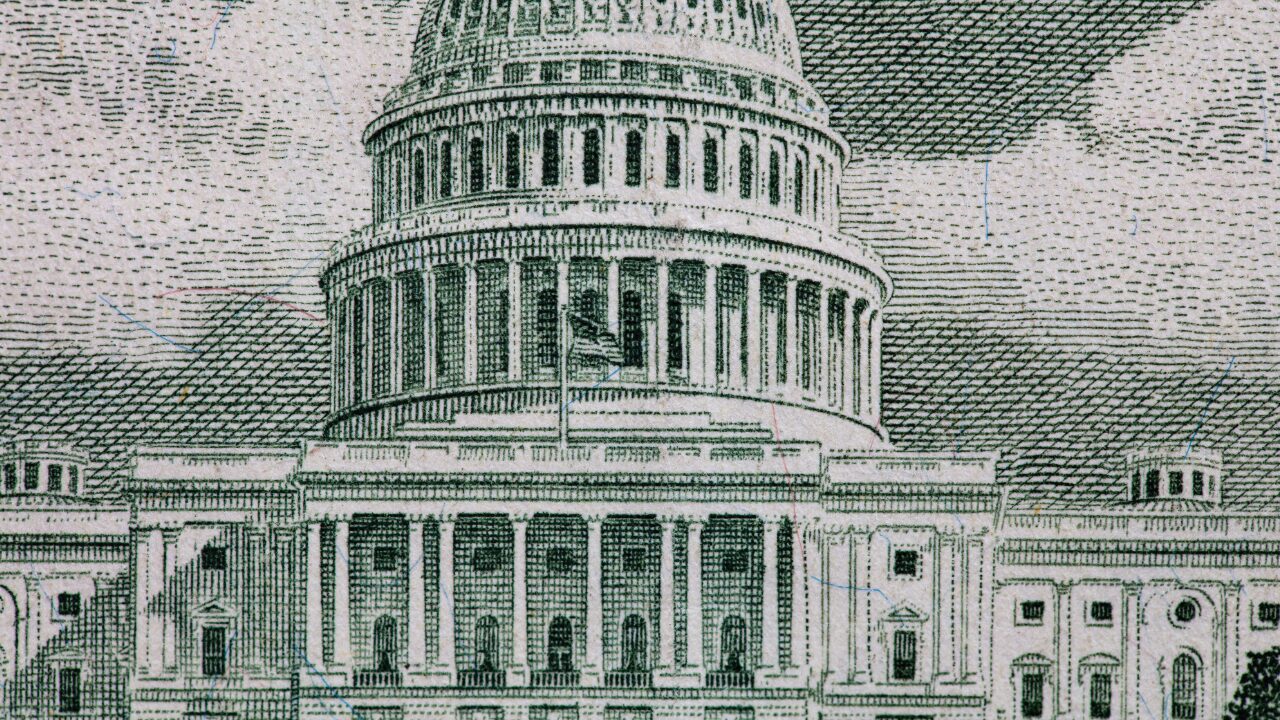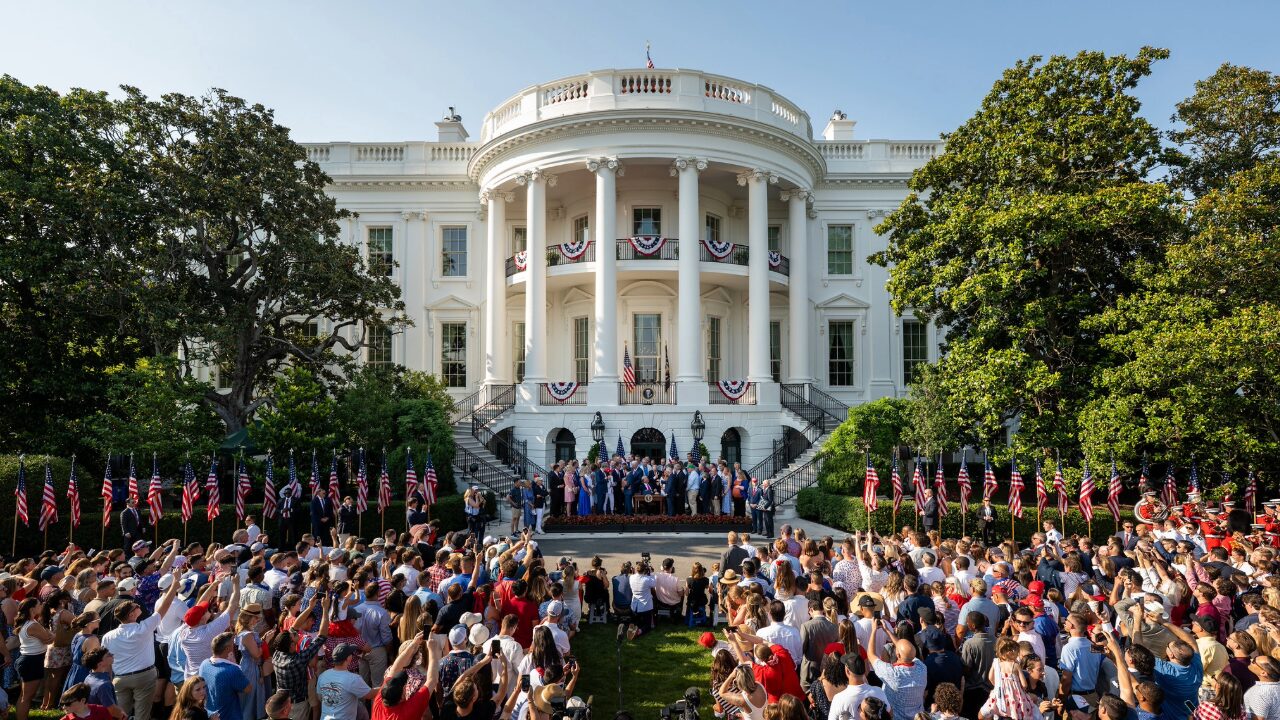Congress Returns from Recess with Critical Funding Deadline
Members of Congress return to Washinton on Monday after a lengthy August recess. Their priority deliverable will be forging an agreement on a measure to fund the federal government past September 30 when current funding authorities expire. The House has passed most of its 12 appropriations bills, but nearly all of the Senate bills have not even received Committee consideration. This means that a Continuing Resolution or CR will be necessary and as usual, there is looming drama around what policy rider(s) may be attached to that vehicle. House Speaker Mike Johnson (R-LA) is under intense pressure from conservatives in his caucus to attach the Safeguard American Voter Eligibility (SAVE) Act, which would require individuals to provide documentary proof of U.S. citizenship in order to register to vote in federal elections. Opponents of the bill assert that the measure is unnecessary as proof or verification of citizenship is already a requirement during voter registration. Any CR that includes the SAVE Act is dead on arrival in the Democrat-controlled Senate, which is why Speaker Johnson is expected to bring this proposal to the floor next week in order to have enough time to negotiate a final CR before Congress leaves town again later in September. Conservatives are also insisting on a CR that extends into next year. This is also unlikely as Senate Democrats will object to any proposal that extends past early to mid-December. We believe that in the end, a short-term clean CR—meaning no policy riders—will be sent to the President on or before September 30 and that the odds of a federal government shutdown are remote this close to the election.
Next week is China Week in the House where a number of bills aimed at checking China’s influence will be considered on the House floor. One of the bills up for consideration is the Countering CCP Drones Act (H.R. 2864) sponsored by Rep. Elise Stefanik (R-NY). The bill requires the inclusion of telecommunications and video surveillance equipment or services produced or provided by Shenzhen Da-Jiang Innovations Sciences and Technologies Company Limited (a Chinese drone maker commonly known as DJI Technologies) on a list of communications equipment or services determined by the Federal Communications Commission (FCC) to pose an unacceptable risk to U.S. national security. We flag this bill only because a number of companies up and down the wood building products supply chain utilize drones for a number of purposes ranging from security to timber stand/forest health monitoring.
OSHA Heat Injury Rule Enters Final Stages, Public Comment Period Begins
In last Friday’s Federal Register, the Occupational Safety and Health Administration (OSHA) published its long-awaited workplace heat standard. The notice may be found here.
In its narrative supporting the proposal, OSHA cites a Bureau of Labor Statistics study that found that 1,042 U.S. workers died due to occupational exposure to environmental heat between 1992 and 2022, averaging 34 deaths per year. Most of the reported fatalities involved workers in the manufacturing, agriculture, landscaping, construction, postal and delivery service sectors.
Overall, the proposed standard would require employers to create a plan known as a HIIPP (Heat Injury and Illness Prevention Plan) to evaluate and control heat hazards in their workplace. Specifically, the proposed standard would apply to all employers and would apply when employees are exposed to heat indexes of 80 degrees—defined as the “initial heat trigger”—for more than fifteen minutes in any sixty-minute period. Employers with outdoor work sites would have to monitor the temperature continuously to evaluate employee exposure to heat. For indoor work sites, employers would be required to identify areas where the heat index could be 80 degrees or more and include a temperature monitoring plan in their written HIIPP. The proposal imposes additional obligations on employers when the high heat trigger—90 degrees—is reached.
Friday’s Register notice kicks off a 120-day public comment period that ends on December 30. The ABMA team will be carefully evaluating the proposal and providing written comments.
ABMA Pushes for Delay in Corporate Transparency Act Implementation
Also last week, ABMA signed another letter advocating for a one-year delay in implementing the Corporate Transparency Act, an obscure anti-money laundering statute that imposes reporting and recordkeeping requirements on small and medium-sized businesses. The letter is addressed to House Speaker Mike Johnson (R-LA) and requests that he bring to the Floor for consideration H.R. 9278, legislation that would extend the effective date of the CTA by one year. Critics of the CTA, which is slated to take effect next year, note that the regulatory mechanisms for compliance are not yet in place and that reporting obligations for affected businesses have not been widely socialized. A draft of the letter which was sent earlier this week may be found here.
Farm Bill Proposals Favor Wood Innovation
Finally, ABMA met with committee staff on the Senate Agriculture, Nutrition, and Forestry Committee late last week to discuss provisions of interest to our sector in the Farm Bill and prospects for a reauthorization bill passing later this year. Ranking Member Boozman (R-AR) continues to tell groups that a Farm Bill rewrite is possible in the Lame Duck session of Congress following the election. However, the actual legislative text has not been shared between Democrats and Republicans on the committee and it appears that marking up and passing a bill in a short Lame Duck session would be a stretch. The good news is that the summaries that have been provided describing Democrat and Republican proposals that would be included in the next Farm Bill are all positive for the wood-building products sector and supply chain. The proposals notably feature robust funding for both the Wood Innovation Grant and Community Wood Grant programs. ABMA will keep you apprised of developments and the progress of our advocacy in this space for the remainder of 2024 and into 2025 if necessary.




